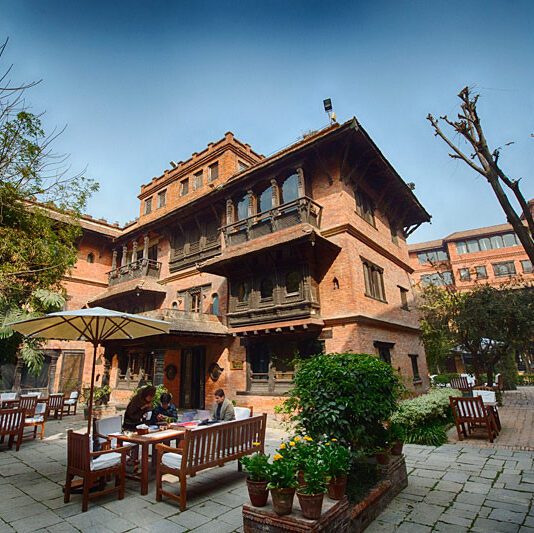Preserving the cultural legacy of The Newari Civilization
Dwarika's Group of Hotels
The Dwarika’s Group was established to support the restoration and preservation of the knowledge, nature and integrity of the people of Nepal. In line with this core principle, we constantly endeavour to nurture both people and planet, and to minimise the negative impact that we may have on our surroundings. We strive to showcase Nepali skills, materials and cultural wealth in all that we do. Finally, The Dwarika’s Group is moving firmly towards an organic lifestyle that is zero-waste.






